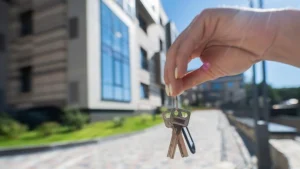Purchasing a home in Spain isn't just about paying the agreed price between the buyer and seller. For the transaction to be legally valid and registered, it's essential to have the property deeded before a notary and register it in the Property Registry.
The cost of registering a house varies depending on several factors: the value of the property, the autonomous community it's located in, whether it's a new build or a second-hand one, whether it's a luxury property, and the associated taxes. In this article, updated as of August 2025, we break down exactly how much it costs to register a house in Spain and answer key questions.
Why is it necessary to write a deed?
Notarization means formalizing the purchase and sale before a notary. This process guarantees legal security for both parties, protects the buyer against potential claims, and allows the property to be registered in the Property Registry. In Spain, this is the current legislation—primarily the Civil code and the Law on Property Transfer Tax and Documented Legal Acts— which outlines the criteria for costs and the steps to follow.
Among the benefits of writing are:
- Legal security: the buyer becomes the legitimate owner.
- Registry publicity: the property is registered, preventing fraud.
- Access to financing: Banks only grant mortgages on registered properties.
- Asset protection: allows you to defend your property rights against third parties.
How much does it cost to register a house in Spain?
The cost of registering a house in Spain consists of several items:
1. Notary fees
Notaries in Spain apply fees regulated by the State. The average cost of a deed of sale ranges from 600 and 1,000 €, depending on the property's price. The higher the purchase price, the higher the tariff.
2. Property Registry
The registration of the home in the Registry entails an additional cost of between 400 and 800 €The amount is calculated based on the registered value.
3. Associated taxes
Taxes represent the largest part of the cost:
- Property Transfer Tax (ITP): It applies to second-hand homes and varies between 6 % and 10 % depending on the autonomous community.
- VAT: In new construction, the buyer pays 10 % on the purchase price (21 % in unaffiliated premises and garages).
- Documented Legal Acts (AJD): taxes notarial deeds and ranges from 0.5 % to 1.5 % of the property value, depending on the autonomous community.
4. Management
If you hire an agency to process the registration and settle taxes, the cost is around 300 and 500 €.
In total, registering a property in Spain can cost between 10 % and an additional 12 % on the purchase price.
New construction vs. second-hand housing
Spanish legislation establishes different criteria:
- New construction: The buyer pays VAT (10 %) and AJD (AJD). Notary and registry fees remain the same.
- Second hand: The buyer pays ITP instead of VAT, plus notary and registry fees.
In both cases, it is advisable to request a prior breakdown of expenses to avoid surprises.
Luxury properties
When it comes to luxury homes, notary and registry fees increase, as they are directly linked to the property's value. A villa worth more than 2 million euros, for example, can generate notary fees higher than 2.000 €, in addition to a higher ITP or AJD in absolute terms. This is especially advisable here. contact a real estate agent specialized, such as those offered by Luxus Real Estates.
What should I do if I don't have the money to sign the deed?
It's common for buyers to have funds for the down payment on the home, but not enough for the closing costs. In these cases, there are alternatives:
- Mortgage extensionSome banks allow you to include the costs of the deed in the mortgage.
- Personal loan: Although with higher interest rates, it can cover these costs.
- Negotiation with the seller: Sometimes it is agreed that the buyer will pay these costs in installments.
Planning ahead is essential, since without a public deed, the sale is not legally finalized.
Historical changes in the costs of writing titles in Spain
Over the past few decades, the costs of registering a home have undergone significant fluctuations:
- 1990s: The AJD had lower rates in several communities, which made it more affordable to register.
- 2000s: With the real estate boom, income from property transfer (ITP) and property transfer (AJD) increased, consolidating higher rates.
- 2008 Crisis: Some autonomous regions raised tax rates to compensate for the fall in tax revenue.
- Recent reforms (2018-2023)The Supreme Court and regulations clarified that the bank assumes certain mortgage costs (such as registration fees), which reduced the burden on the buyer.
- 2024-2025: High rates for property transfer (ITP) and legally established legal documents (AJD) remain, with significant regional differences. In some regions, such as Madrid, partial discounts have been approved for young people and large families.
These changes show how the Spanish legislation It has been key in setting costs, by strictly defining the criteria for distributing expenses between buyers, sellers, and financial institutions.
Legislation in other countries in Europe and Latin America
The process of writing and its costs vary widely in other countries:
- France: "Notary fees" include taxes and fees, ranging from 7 to 8 percent of the purchase price. French legislation centralizes these criteria at the national level.
- Germany: Notary and registration fees amount to 1.5 % – 2 %, plus a transfer tax (Grunderwerbsteuer) between 3.5 % and 6.5 % depending on the federal state.
- Italy: Notary fees are lower, but taxes can represent between 2 % and 9 % of the purchase price.
- Argentina: : the costs of notarization are around 7 % – 8 %, including the stamp tax (generally 3.6 %) and regulated notary fees.
- Mexico: vary by state, but can range from 4 % to 7 %, with the Property Acquisition Tax as the main component.
Comparing these systems helps us understand the importance of Spanish legislation as a guarantor of legal certainty and transparency, by clearly establishing who should pay what.
Without a doubt, knowing how much it costs to register a house in Spain is essential for any buyer, since the costs can amount to between 10% and 12% of the property's price. Spanish regulations, through the Civil code and the Law on Transfer and Legal Action (ITP) and Debt Collection (AJD), precisely outlines the criteria to follow. The difference between new and refurbished construction, the impact of luxury properties, and the need to provide additional financing make planning key.
Having professional advice not only ensures compliance with all legal requirements, but also optimizes the financial burden of a process that, although costly, ensures maximum asset and legal protection for the buyer.


